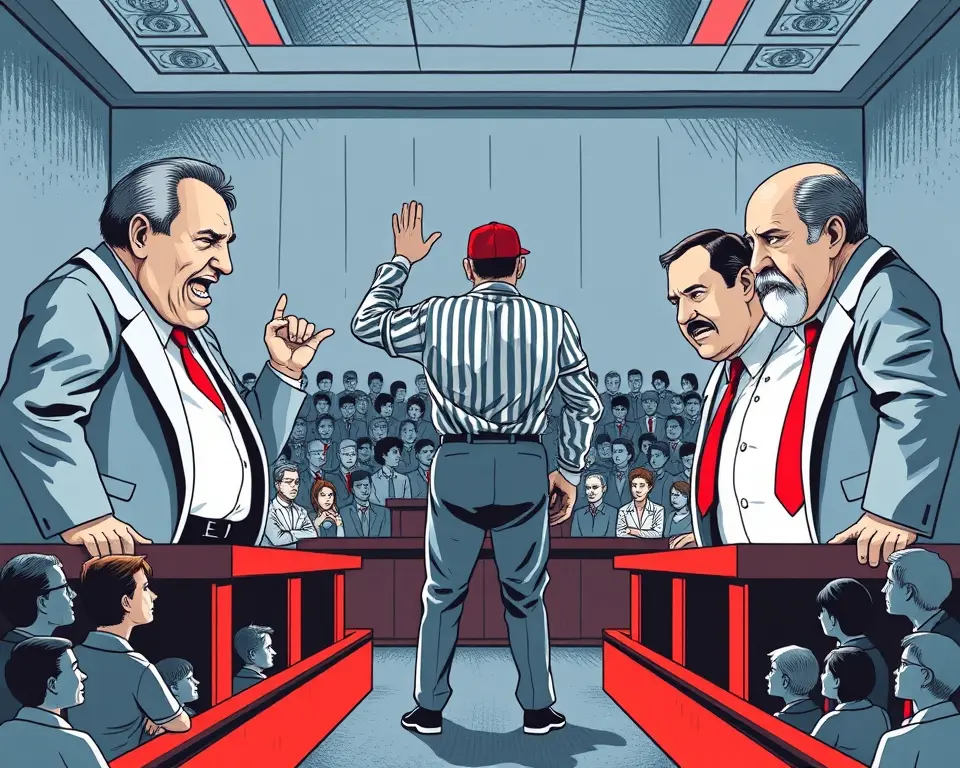A dispute involving psychiatrists facing immense workloads and an inadequately funded mental health system has escalated, prompting calls for intervention to find a resolution. The situation highlights the urgent need for action to address the challenges within the mental healthcare sector.
Overworked Psychiatrists and Underfunded System Spark Crisis
The mental health system is facing immense pressure, with psychiatrists reporting unsustainable workloads and a lack of adequate resources. This has led to a crisis point where professionals are struggling to provide the necessary care for patients, raising concerns about the quality and accessibility of mental health services.
Psychiatrists Demand Better Pay to Prevent Mass Exodus
Psychiatrists are advocating for a significant increase in salaries, with some suggesting a raise of more than $45,000 per year, to prevent a mass departure from the public system. The current compensation levels are seen as insufficient, especially considering the demanding nature of the work and the critical role these professionals play in the community’s well-being.
Government Initiatives to Improve Transparency in Medical Costs
In related news, the government is attempting to enhance transparency in medical billing to provide patients with a clearer understanding of healthcare costs. An upgrade to the Medical Costs Finder website is planned, which would allow patients to compare fees charged by different specialists for the same procedures. This initiative aims to help Australians find better value when seeking medical advice and treatment.
Ethical Considerations in Healthcare
The situation raises several ethical considerations, including the duty of healthcare professionals to provide care without discrimination, the importance of patient confidentiality, and the need to balance obligations to employers with ethical duties.
Medical Ethics in Conflict Zones and Emergency Situations
Medical ethics remain consistent in both times of peace and conflict. However, healthcare professionals working in conflict zones or emergency situations may face intensified challenges. The core obligation is to provide care based on need, without unwarranted discrimination. It is essential to prioritize the most seriously injured, regardless of their background or status.
The Delicate Balance of Dual Loyalties for Military Physicians
Military physicians often face a unique moral dilemma, balancing their duty as a doctor with their loyalty as a soldier. They must uphold medical ethics by providing care to anyone in need, whether they are fellow combatants, civilians, or enemy forces. This can create a conflict between their obligation to patients and the expectations of the military environment.
Reporting Incompetent or Impaired Colleagues
A survey of American doctors revealed that while most agree on the importance of reporting incompetent or impaired colleagues, nearly half have encountered such a situation and failed to report it. This reluctance may stem from fear of retribution or lawsuits.
Concerns About Overdiagnosis and Stigmatization in Mental Health
Recent comments suggesting an “overdiagnosis” of mental health conditions have sparked debate and raised concerns about stigmatizing individuals with mental illness. Experts caution against using language that could undermine the experiences of patients or the opinions of medical professionals. It is crucial to approach mental health diagnoses with sensitivity and avoid creating a climate of shame or punishment.
The Importance of Access to Timely and Effective Treatment
To support individuals with mental illness and help them return to work, it is essential to ensure access to timely and effective treatment. Pretending that mental illness is not real or shaming those who experience it is counterproductive and discourages investment in necessary mental health services.
Umpires in Healthcare: A Call for Impartial Intervention
Given the complexities and potential conflicts within the mental health system, an impartial “umpire” is needed to mediate disputes and ensure fair outcomes. This could involve an independent body or mediator tasked with addressing the concerns of overworked psychiatrists, advocating for adequate funding, and promoting ethical practices. Just as umpires in baseball ensure fair play, an impartial entity can help navigate the challenges in mental healthcare and promote a system that prioritizes patient well-being and professional integrity.










